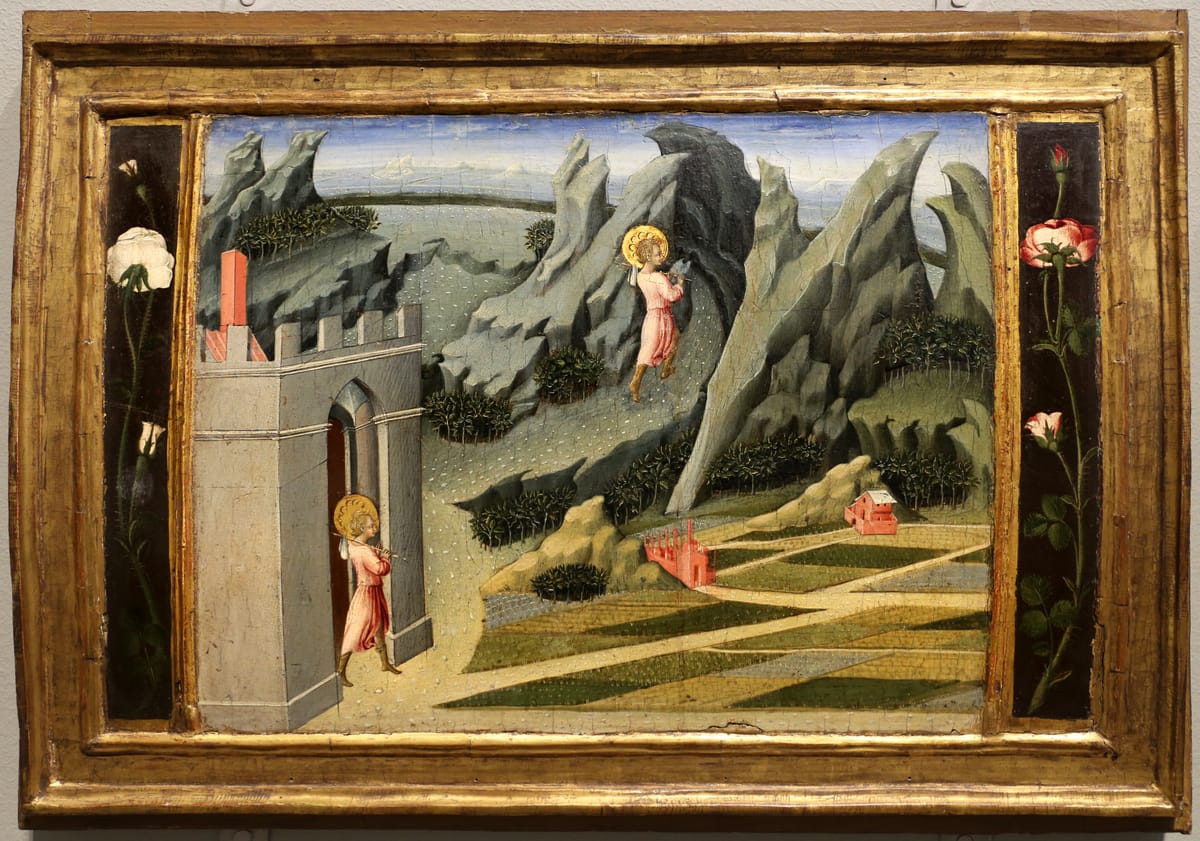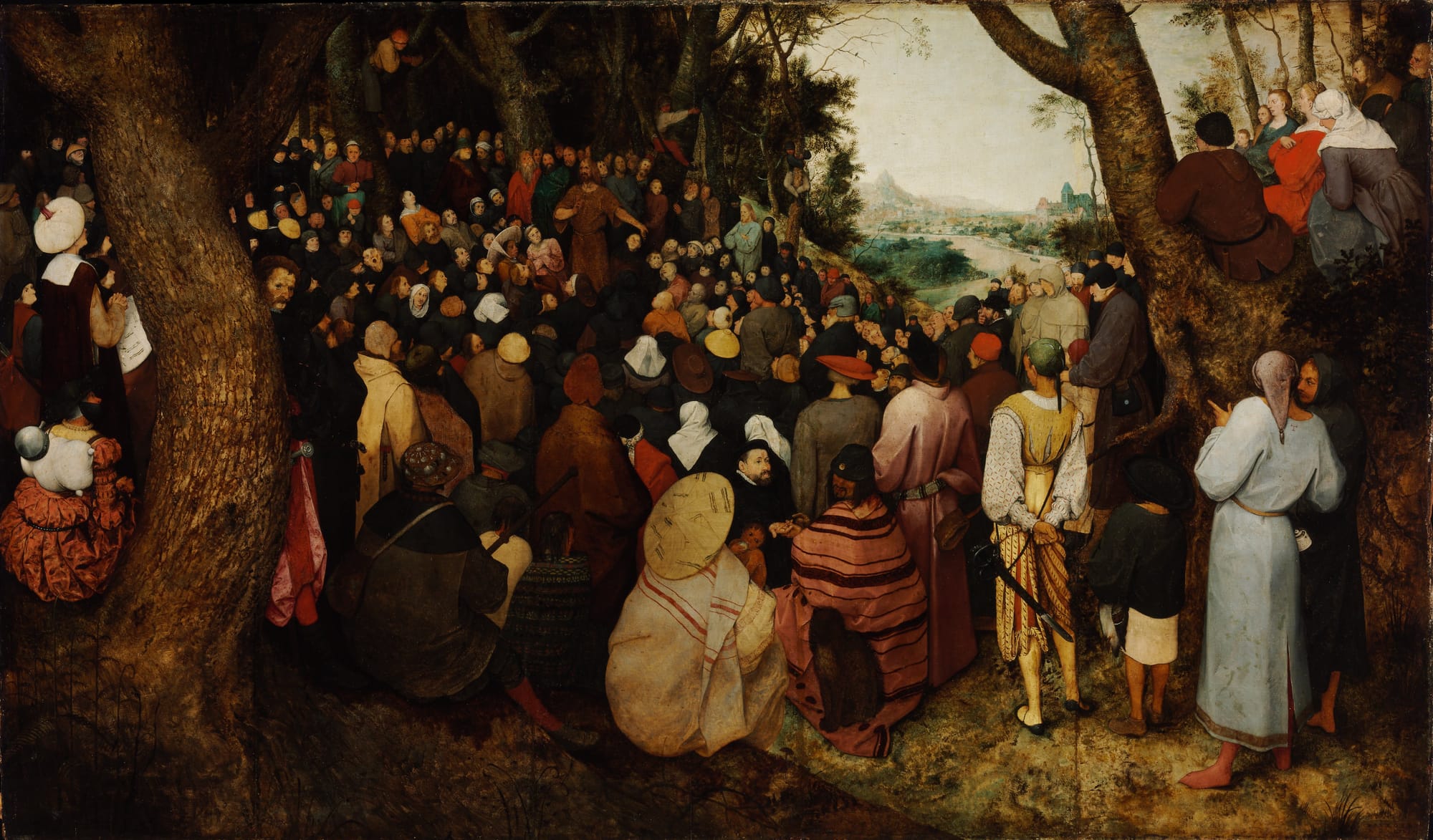Exiting capitalism, entering commonwealth
To question capitalism from a wisdom perspective is not to endorse marxism, communism, socialism, or any other economic theory. Rather, lovers of wisdom criticize capitalism for elevating love of money above love of god. And they manage money as commonwealth, not as private property.

solstice new moon, Islamic new year, feast of John the baptiser
Note: This is the first post of the new season and new publishing schedule.
Back in February, I shared with a few friends from college the first post in this project, calling capitalism, casteism, and individualism social ills. One of them said, “I’m sticking with capitalism. It just works.” He is right about that. It works very well for producing wealth. Capitalism has some positive features, but ultimately it is destructive to loving god because it is rooted in love of wealth.
I should say here at the outset that to question capitalism from a wisdom perspective is not to endorse marxism, communism, socialism, or any other economic theory. Those are all money ideologies, not theologies. Studying god — theology — is intended to be a way of loving god through the intellect. Economic ideologies tend to end in loving money because that is where they begin: in the study of money.
I should also state up front that money itself is not the problem. As famously pointed out in the Christian tradition: “the love of money is the root of all kinds of evil. Some people have even turned away from God because of their love for it, and as a result have pierced themselves with many sorrows.” (1 Timothy 6:10 NLT/TLB)
Nevertheless, lovers of god living in community need some kind of system for managing wealth, especially if they interface with lovers of money (non-lovers of god) in the world at large. But any system of wealth for lovers of god must conform to the worldview of loving god above all else; and so wealth, and systems of wealth, must be subordinate to love of god. We can call this kind of system commonwealth. We’ll look at that in a minute. First let’s understand capitalism, our wealth system, from a wisdom perspective.
Market dependence
What’s wrong with capitalism? Why would we need to get out of it? From a wisdom worldview (“seeing the whole”), the problem with capitalism is that it makes us all lovers of money, to some degree.
Vivek Chibber, author of Confronting Capitalism: How the World Works and How to Change It, identifies the condition of “market dependence” as the defining feature of capitalism. (Note: I believe Chibber identifies with socialism, and maybe even marxism. In quoting his critique, I am not supporting either of those ideologies, just leveraging the truth of his criticism.) People in a capitalist society, says Chibber, “depend on the market to make a living.”
“. . . what this means is that when people try to acquire the basic necessities for their well-being — such as food, clothing, and shelter — they have to buy or rent them from someone else. They don’t have the option of making the essentials themselves.” (A Buddhist Critique of Capitalism; notice that I found this in a wisdom-oriented text, not a socialist or marxist one.)
To depend on markets and money is to be captive to them. We have to spend a lot of time thinking about money, working for money, protecting money, insuring property, protecting property — the list goes on and on. In fact, it never ends.

People with plenty of private property and money might not think this is a problem. Many of them even enjoy devoting most of their energy to money-related endeavors. Yet, wisdom traditions teach us that we cannot devote ourselves to money and god; we must choose one or the other. Our dependence on markets and money means we are devoted to them, and not to god. As captives to money and markets, we are not free.
Exiting the empire
In ancient times, exiting empire and its money system was easier in some ways. One could simply walk into the forest, into the wilderness, or into the countryside — places where empire had no control — and live a life of contemplation and devotion to god. In Hinduism, this is the third of four stages of life. Called Vanaprastha, it means literally “the stage of going to the forest,” what today we might call retirement. (The podcast How God Works covered it a few years ago.)
Retiring or retreating to the forest is what successful lovers of god do at any age. It’s why so many of us fantasize about living off the land: it represents freedom.
When Siddhartha Gautama was around 29 and still a rich young man, before he became an enlightened teacher called the Buddha, he renounced wealth and family and walked into the forest. Because this was a tradition in his society, Siddhartha found company in the woods. Not only did he find other seekers, he also found teachers. According to Buddhist history, Siddhartha studied with at least a couple of teachers in the forest before becoming one himself.

Five hundred years later, a young Yeshua of Nazareth (aka Jesus), ventured out into the countryside near the Jordan River to meet John The Baptiser, his cousin and forerunner in the renewal of wisdom. According to Christian history, John was living off of the land, wearing camel’s-hair clothes, eating plants and honey. And people were flocking to him for mental freedom, what Greek scribes called metanoia, the opposite of paranoia.
Usually translated as “repentance” and often misunderstood as mostly regret, metanoia as preached by John and Jesus meant something more like, “Save yourselves from this crooked nation,” or “Get out while you can; get out of this sick and stupid” mindset. (Acts 2:40 TLB/MSG)
So how do we exit capitalism? How do we break free of our dependence on the market here and now? How do we love god in the midst of lovers of money? First, we change our minds. We replace the mindset of capitalism and dependence on markets with a mindset of commonwealth and dependence on god. Then we depend on each other to maintain this new mindset and live it. This is not easy to do. But it can be done. In fact, it’s happening right now.
Next time (on the full moon) we’ll look at two examples of modern-day wisdom communities free from capitalism: Bruderhof, a Christian community, and Plum Village, a Buddhist community. I will also share why I did not join either one of them.
Conclusion
For now, suffice it to say that true liberation — mental, emotional, and material liberation — includes freedom from mass economics. Today that means freedom from capitalism. And freedom from capitalism is not an individual effort. It takes a group and an alternative system, in a word, commonwealth.

Comments ()